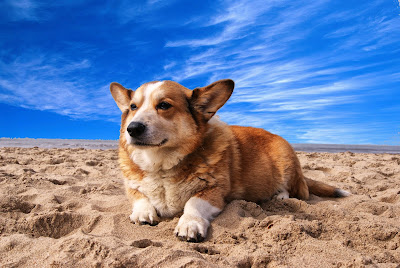Why Cats Foam At The Mouth
Cat Foaming at the Mouth? Causes and What to Do
Are you worried because
you have noticed your cat foaming at the mouth? Don't panic yet. Although it
can be a concerning sight, foaming or excessive drooling in cats can have
several causes, and not all of them are emergencies. In this article, we will
discuss the common reasons why cats foam at the mouth and what you can do about
it.
.jpg) |
| Why Cats Foam At The Mouth |
Causes of Cat Foaming at the Mouth
Dental Problems: If your cat has dental
issues such as a broken tooth, gum disease, or an abscess, they may start
drooling excessively or even foam at the mouth. The pain and inflammation
caused by dental problems can lead to hypersalivation.
Poisoning: Certain toxins such as
insecticides, cleaning products, or even certain plants can cause a cat to foam
at the mouth. In severe cases, your cat may also have seizures or collapse.
Allergies: Cats can have allergic
reactions to various substances, including food, medications, and insect bites.
One of the symptoms of an allergic reaction is excessive drooling or foaming at
the mouth.
Respiratory Infections:
Cats suffering from respiratory infections such as feline herpes virus or
calicivirus can also drool excessively.
Heatstroke: During hot weather, cats
can overheat, and if they are unable to cool down, they may start foaming at
the mouth.
What to Do if Your Cat is Foaming at the Mouth
If you notice your cat
foaming at the mouth, the first thing you should do is try to determine the
cause. If your cat has ingested a toxin or something harmful, contact your
veterinarian immediately or take your cat to the nearest emergency veterinary
clinic. If your cat is suffering from heatstroke, move them to a cool and
shaded area and provide them with water to drink.
If your cat's drooling or
foaming is due to dental issues or respiratory infections, a visit to the
veterinarian is necessary. Your vet may prescribe medications or recommend
further tests, such as blood work or X-rays, to diagnose and treat the underlying
issue.
Preventing Cat Foaming at the Mouth
While some causes of
foaming at the mouth are preventable, others are not. However, there are things
you can do to help reduce the risk of your cat experiencing excessive drooling:
Keep your home free from
toxic substances, including cleaning products, human medications, and plants
that are toxic to cats.
Take your cat for regular
dental check-ups, and if any dental problems are detected, have them treated
promptly.
Keep your cat up to date
on their vaccinations to help prevent respiratory infections.
Provide plenty of water
and shaded areas for your cat to cool down in hot weather.
Keep an eye on your cat
and be alert to any changes in their behavior or health.
Conclusion
Although seeing your cat
foaming at the mouth can be alarming, it's essential to stay calm and try to
determine the underlying cause. In many cases, excessive drooling in cats is
not an emergency, but it's always best to consult with your veterinarian to
rule out any serious health issues. By taking steps to prevent potential causes
and staying vigilant, you can help keep your cat healthy and happy.
#cat-foaming-at-the-mouth,
#cat-drooling, #cat-excessive-drooling, #cat-excessive-salivation, #cat-health,
#cat-care


.jpeg)
Comments
Post a Comment